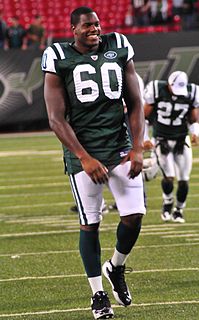A Quote by Daniel Lyons
A startup job is an investment, after all: Venture capitalists may wager money, but you're staking something more precious - your time. And unlike VCs, you can't spread your risk by betting on a bunch of companies at once. Start with TAM. That's 'total addressable market,' and if it's not big enough, there's no point in talking.
Related Quotes
Many first-time founders fail to understand the difference between the potential of the Total Addressable Market (TAM) and the very finite subsection they can hope to capture. No company ever captures the entire market they pioneer. Innovation doesn't happen in a vacuum, and others will jump in from the moment you've identified the potential.
That first company I started made a lot of money for the venture capitalists - nearly $30 million - but next to nothing for the founders. The companies I started after that varied between failures and mediocre successes. But at no point did I ever consider getting a 'real job.' That felt like a black and white world, and I wanted Technicolor.
Generally speaking, experience counts for something. So you'd expect entrepreneurs who've been through the ups and downs of a tech startup to have an advantage over the newcomers. Or at least have an equal chance at success. But in fact the opposite may be true. A number of venture capitalists I've spoken with have said that too many "old guard" entrepreneurs are not being bold enough in their business decisions, and it's hurting their startups.
Unlike return, however, risk is no more quantifiable at the end of an investment that it was at its beginning. Risk simply cannot be described by a single number. Intuitively we understand that risk varies from investment to investment: a government bond is not as risky as the stock of a high-technology company. But investments do not provide information about their risks the way food packages provide nutritional data.
I'm often asked how to start investing with little or no money. Please hear this as this is the hardest thing for people to understand: you do NOT invest with money! You invest with your mind! No matter what the field, your biggest asset is your mind. Once you have knowledge, you find deals, find your team and use other people’s money. You sell the deal and your team to get investment money.
Value in relation to price, not price alone, must determine your investment decisions. If you look to Mr Market as a creator of investment opportunities (where price departs from underlying value), you have the makings of a value investor. If you insist on looking to Mr Market for investment guidance however, you are probably best advised to hire someone else to manage your money.
These results add up to perhaps the most important investment lesson of all that can be drawn from this week's market anniversaries: Predicting turns in the market is incredibly difficult to do consistently well. That means that, if your investment strategy going forward is dependent on your anticipating major market turning points, your chances of success are extremely low.




































